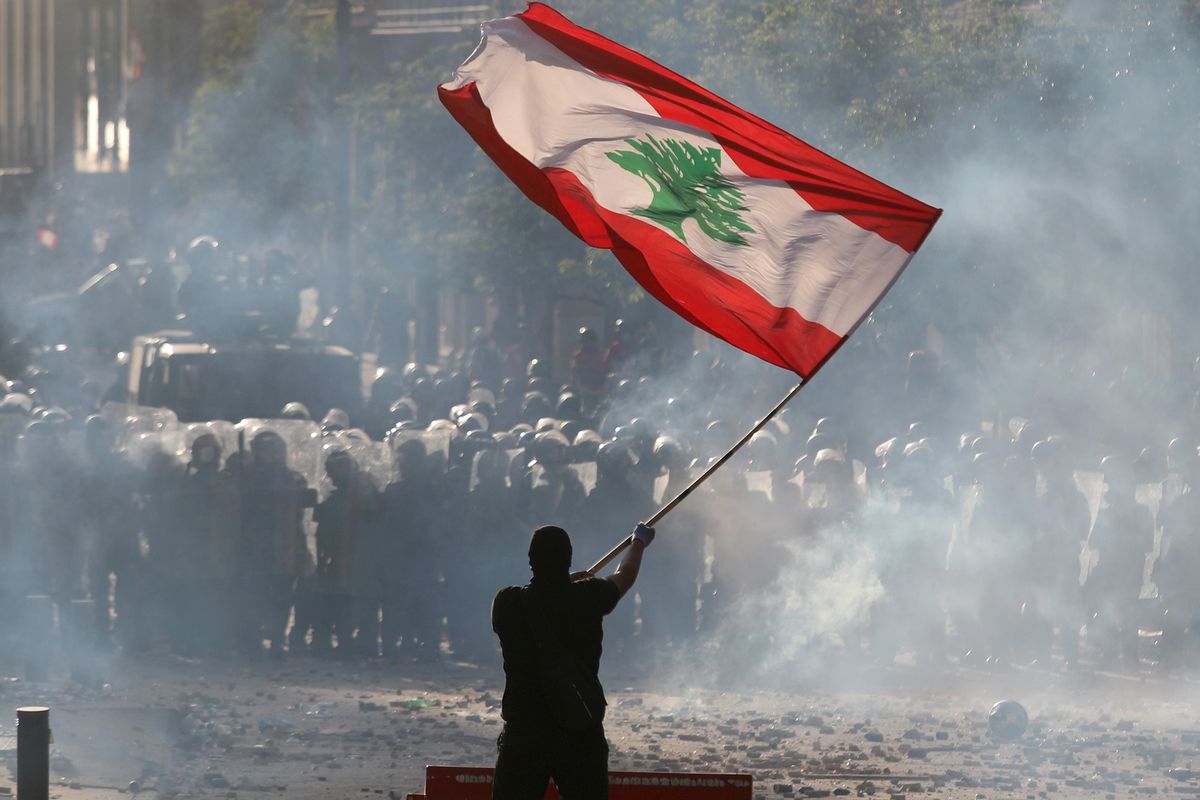World Donors Demand Reforms Before Disbursing $300 Million in Humanitarian Aid to Lebanon

At the angry demonstrations Saturday, protesters set up gallows and nooses in central Beirut and held mock hanging sessions of cut-out cardboard images of top Lebanese officials.
Demonstrators held signs that read “resign or hang”.
One police officer was killed and dozens of people were hurt in confrontations that lasted for hours and where security forces used rubber bullets to disperse the crowds.
On Saturday and in a new expression of rage, protesters also fanned out around the city, storming a couple of government ministries and briefly declaring the Foreign Ministry as the headquarters of their movement.
In the economy and energy ministries, the protesters ransacked offices and seized public documents claiming they would reveal how corruption has permeated successive governments.
In the country where civil war raged for 15 years, few, if any, have been held accountable for it and most of the warlords remain in power or leading powerful political factions.
On Sunday, France’s ambassador to Lebanon said his country is taking part in the investigation of the August 4 blast.
Bruno Foucher tweeted that 46 officers are operating as part of the judicial investigation.
That probe was started by a French prosecutor after a national of France, Jean-Marc Bonfils, was killed in the blast and others injured.
It is “a guarantee of impartiality and speed” in the investigation, Foucher tweeted.
The government, backed by the powerful militant Hezbollah group and its allies, announced it is defaulting on Lebanon's sovereign debt and has since been engaged in difficult, internally divisive talks with the International Monetary Fund for assistance.
The coronavirus restrictions deepened the impact of the economic and financial crisis and fueled public anger against the new government.
Lebanese have criticized Diab's government for being unable to tackle the challenges, saying it represents the deep-seated political class that has had a hold of the country's politics since the end of the civil war in 1990.
In a televised speech Saturday evening and in an attempt to diffuse public anger, Diab offered to propose early parliamentary elections and said he was prepared to stay in the post for two months to allow time for politicians to work on structural reforms.
(Writers: Sarah El Deeb, Sylvie Corbet)
Source: https://apnews.com/24a50c0f2ee1c1995374ae66aeacf946
Simak breaking news dan berita pilihan kami langsung di ponselmu. Pilih saluran andalanmu akses berita Kompas.com WhatsApp Channel : https://www.whatsapp.com/channel/0029VaFPbedBPzjZrk13HO3D. Pastikan kamu sudah install aplikasi WhatsApp ya.

































